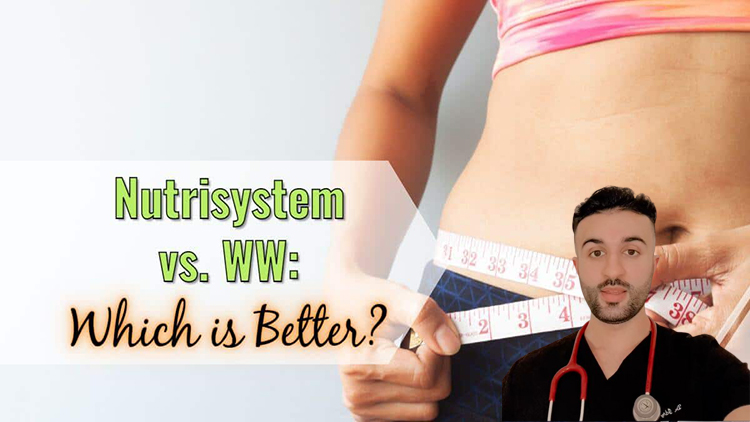
If a mother puts on too much weight during pregnancy, it increases the chances that her child will be overweight at age 12, new research shows.
Medicine has long focused on the effects of malnutrition during pregnancy. Expectant mothers are encouraged to take vitamin supplements to ensure that their child receives all the crucial nutrients they need. But with America’s rising obesity epidemic, it’s time to examine the effects of another, seemingly unrelated problem: overnutrition.
To learn more, Dr. David Ludwig at the Boston Children’s Hospital partnered with Dr. Heather Rouse from the Arkansas Center for Health Improvement and Dr. Janet Currie at Princeton University. They used a set of data gathered in Arkansas that included 42,133 women and their 91,045 children. The team matched hospital records of women’s weight gain during pregnancy with body mass index (BMI) data gathered from their children years later.
By examining women with more than one child and comparing the siblings’ outcomes, they were able to control for both genetics and upbringing. The researchers speculated that two children with the same parents, growing up in the same home and eating the same food, might have different risks for obesity based on how much weight their mother gained during each pregnancy.
Feed the Mother, Feed the Child
The study results confirmed what Ludwig had already seen in animal studies: a mother’s overnutrition during pregnancy made her children more likely to be overweight or obese as middle-schoolers, independent of genetics and diet.
“This distinction is important,” explained Ludwig, director of the New Balance Foundation Obesity Prevention Center at Boston Children’s Hospital, in an interview with Healthline. “If maternal overnutrition has an independent effect on childhood body weight, the implications would be major: obesity could accelerate through successive generations, unless this vicious cycle is interrupted.”
When an expectant mother overeats, her bloodstream becomes saturated with surplus calories, which reach her child along with all the nutrients the child needs. Although the exact mechanism is still unknown, nine months of exposure to an overly-rich diet programs the child’s body to retain calories as an adult, making him or her more likely to be overweight.
Ludwig thinks this might be one factor contributing to the obesity epidemic. “We found that pregnancy weight gain was strongly associated with childhood BMI,” he said. “The child of a woman with high pregnancy weight gain had an eight percent increased risk of obesity at an average age of 12 years. Though relatively small on an individual basis, the effects we found could explain several hundred thousand cases of childhood obesity globally each year.”
Short-Term Sacrifice, Long-Term Gain
This finding offers hope for overweight mothers-to-be who want to do everything they can to protect their children from obesity. Due to a number of metabolic and hormonal factors, losing weight and keeping it off can be difficult for many women, especially over the course of years. However, Ludwig’s research means that simply trying to maintain weight control for the duration of your pregnancy could have a lifelong protective effect on your child.
“Weight management can be difficult for many people over the long-term,” Ludwig explained. “This study suggests that avoiding excessive weight gain during pregnancy—just 9 months—can have long-term benefits for the next generation. Since pregnant women are often especially motivated to make behavioral changes for the benefit of their child, these findings suggest that the best time to begin childhood obesity prevention is prior to birth.”
Children of Older Mothers May Face More Health Risks as Adults
Researchers say children, especially boys, born to older mothers may face more heart health risks as adults. But they may have a few added benefits, too.

Children born to older mothers may have more heart risks later in life, according to a new study.
Researchers at the University of Alberta in Canada have also concluded that this may be more true of male offspring.
Their report is published in The Journal of PhysiologyTrusted Source.
In developed countries, the average age of women giving birth to their first child has been steadily increasing.
Because of this, the researchers believe their findings may have valuable population and healthcare implications and should be examined further.
“This research is important because it improves our understanding of the impact of giving birth at an older age on the health of offspring in later life,” Sandra T. Davidge, PhD, a principal investigator in the study and a professor in the Department of Obstetrics and Gynaecology at the Alberta university, said in a press release.
“We are further analyzing the mechanisms that might be contributing to these adverse effects on the offspring of older mothers, in particular focusing on the role of placental function,” she continued.
About the research
The researchers set out to go beyond immediate health risks to the baby.
They wanted to know if the offspring would have more health problems as adults.
To conduct their study, they used older rats equivalent in age to 35-year-old women. They mated the rats with younger males.
At 4 months old, their offspring were tested for blood vessel and heart function.
The researchers found that the offspring of older rats had signs of weaker cardiovascular systems than those born to younger female rats.
They also found that male rats took longer to recover from cardiac ischemia, or lack of blood flow to the heart.
It’s the first attempt to determine the long-term effects on children born to women over age 35.
In future research, they’ll try to learn if the same is true of human babies.
If so, this information can be used to develop preventative treatments for children born to older women.
The researchers suggest that since females didn’t show the same vulnerability to heart problems or impaired blood vessels as males, intervention strategies should be tailored according to gender.
Dr. Ilan Shapiro is a pediatrician and medical director of Health Education & Wellness with AltaMed Health Services in California. He wasn’t involved in the study.
Shapiro told Healthline the importance of this research is the creation and use of an investigation model that will help scientists understand more about how genetics, hormones, and other things could affect the offspring of older mothers.
But he cautioned that they used a small number of animals and there are many differences between rats and humans.
“We need to learn if this translates — if it is valid — in humans,” he said.
Risks of pregnancy after age 35
There are known health risks to both mother and child when the mother is older.
Females are born with all the eggs they’ll ever have during their life.
With age, the number and quality of eggs starts declining, especially after a woman reaches her mid-30s. That’s one reason it can be harder to get pregnant at older ages.
Another issue is that both older women and older men are more likely than younger parents to have preexisting health issues.
After age 35, pregnancy raises the risks of complications such as hypertension, fetal growth restriction, and premature birth.
Shapiro said the older the mother, the higher the probability of chromosomal abnormalities.
“This goes from a 25-year-old that has a 1 in 1,064 chance of having a child with Down syndrome to 1 in 19 for a 45-year-old,” said Shapiro.
“Miscarriages go from almost 9 percent in the age range of 20 to 24 [years] to 75 percent for a 45-year-old or above. The rate of stillbirths almost doubles when mothers are more than 35 years of age,” he continued.
Shapiro said diabetes and emergency caesarean delivery are among the other possible complications of older mothers.
He noted an older father’s sperm also has the potential of having more genetic errors.
Benefits of older parenthood
Today, many women aged 35 and beyond are venturing into parenthood for the first time.
There is good news for these older mothers and fathers.
“There are some projections that note, depending on socioeconomic status, the children have more probability of going to college. There may be less verbal and physical punishment, and it can be financially more stable,” said Shapiro.
“In general terms, the child of an older father has the same benefits as children born of an older mother,” he continued.
Researchers around the world are finding that children born to older mothers and fathers may have a few benefits over children of younger parents.
In 2012, a large-scale observational study concluded that higher maternal age was associated with better health and development for children up to 5 years of age.
And a 2016 study suggested that children of older mothers in industrialized countries are healthier, taller, and get more education than the children of younger mothers.
Shapiro offers a few recommendations for older expectant parents.
Prenatal vitamins and physician follow-ups are vital.
Older parents should also speak with their doctors about checking sugar levels as well as standard testing for chromosomal abnormalities.
“Take care of yourself. If you’re eating, sleeping, and exercising well, this will improve outcomes,” said Shapiro.
“At any time that there is a question or concern, write it down, and talk to your doctor. And enjoy every moment,” he advised.






